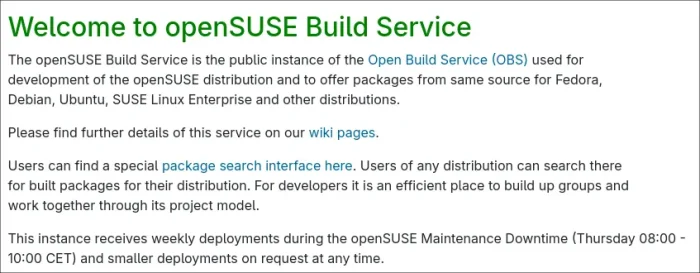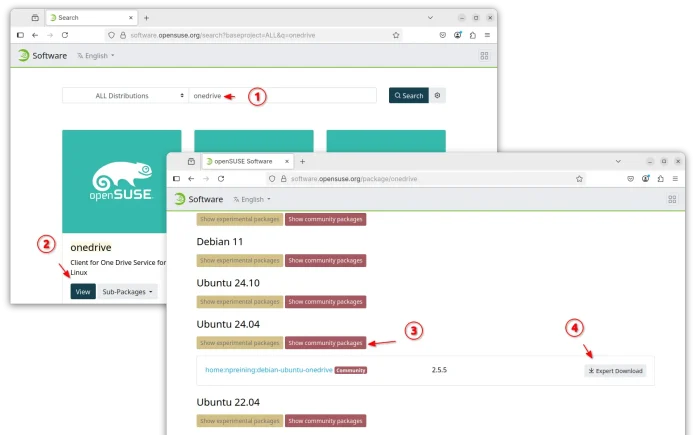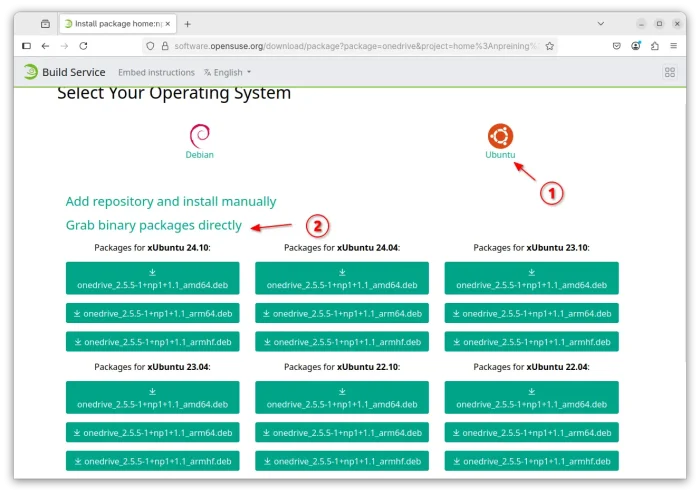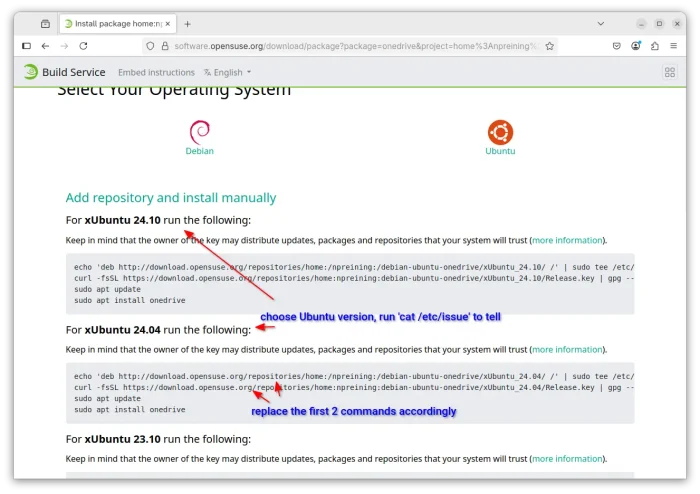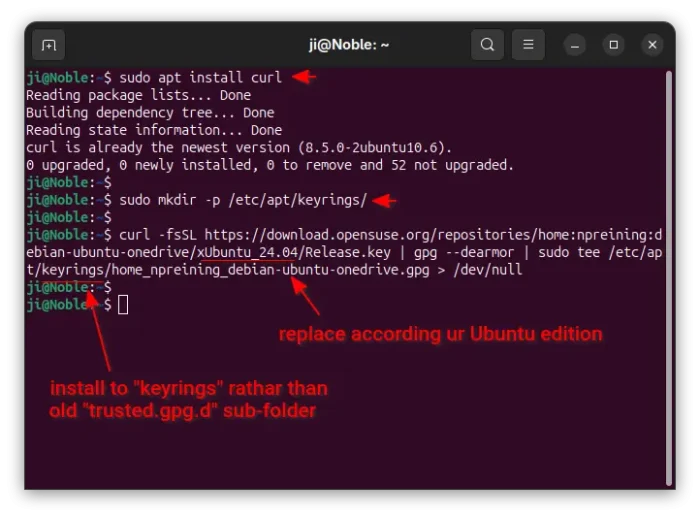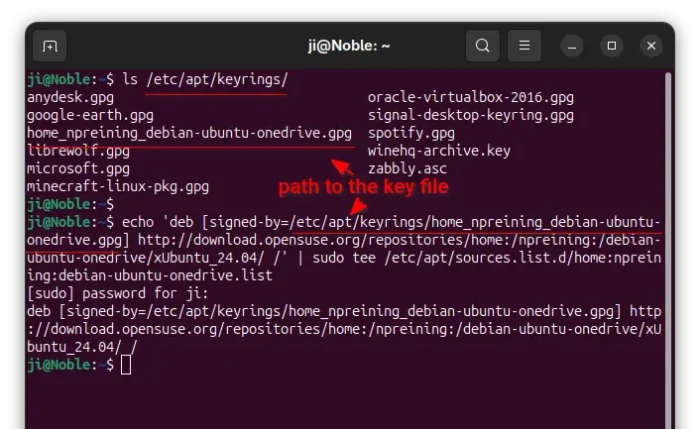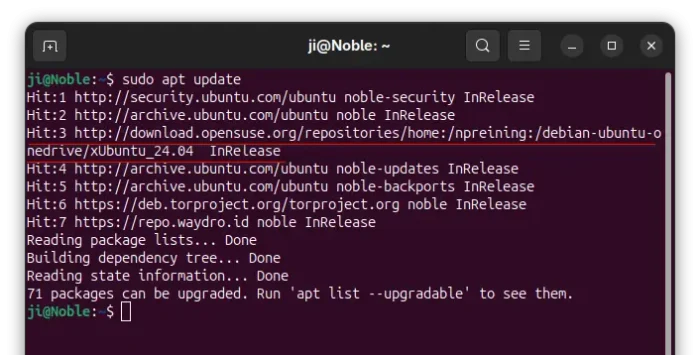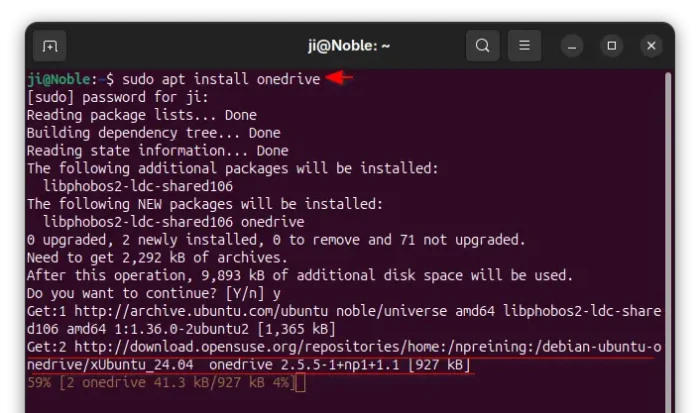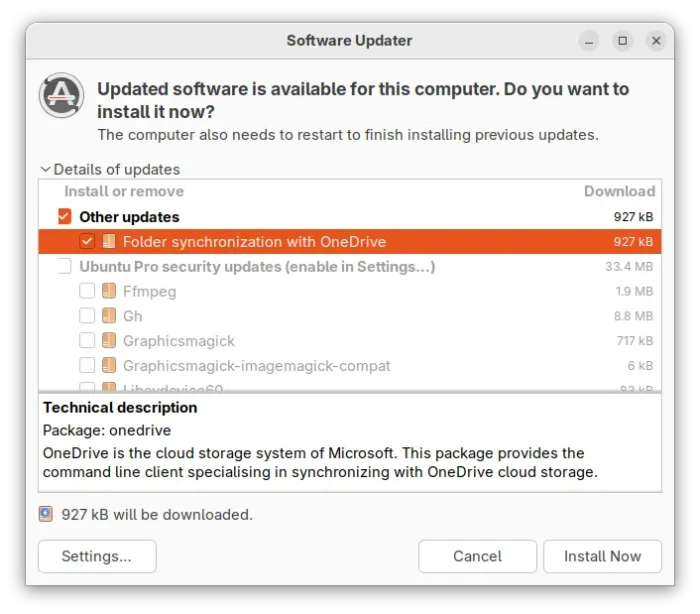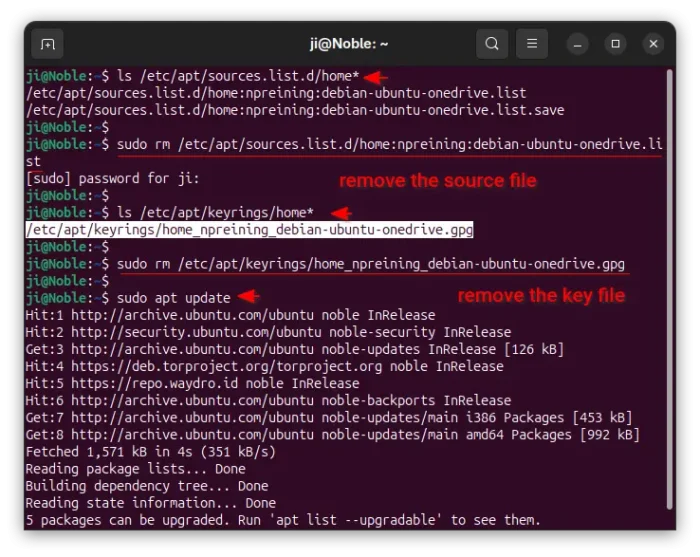This tutorial shows how to add openSUSE OBS repository and install/update app packages from it in Ubuntu.
Like Ubuntu PPA and Fedora Copr, openSUSE has Open Build Service (OBS) for software developers and community maintainers to build and distribute app packages. Not only for openSUSE itself, it also supports building packages for Fedora, Debian, Ubuntu, and other Linux Distributions.
As far as I know, OBS hosts the official Darktable packages for Debian, Fedora, Ubuntu, community maintained onedrive packages for Debian/Ubuntu, and tons of other software packages.
Search app packages from openSUSE OBS
To find out if the OBS service hosts the app package that you want to install in your Linux system, first go to software.opensuse.org:
Then, search the app and click “View” under the target package. It will list all the supported Linux Distributions, and provide “Export Download” button for them.
Add OBS repository in Debian/Ubuntu to receive updates
Once you got into the package page, either click Ubuntu logo -> Grab binary packages directly, then select download .deb package and install locally.
Or, add the repository so you may keep the package up-to-date by receiving updates through system update manager (Software Updater).
The default commands under “Add repository and install manually” section are outdated and no longer work!
Here are the updated commands (use ‘onedrive’ as example) for Debian and Ubuntu users:
- First, run command to install
curlin case you don’t have it:sudo apt install curl
- Next, create
/etc/apt/keyringsdirectory, in case it does not exit:sudo mkdir -p /etc/apt/keyrings
- Then, copy the second command for your Ubuntu/Debian edition, under “Add repository and install manually” section, and replace trusted.gpg.d with keyrings to install the key to the
/etc/apt/keyringsdirectory, instead of old deprecated one.curl -fsSL https://download.opensuse.org/repositories/home:npreining:debian-ubuntu-onedrive/xUbuntu_24.04/Release.key | gpg --dearmor | sudo tee /etc/apt/keyrings/home_npreining_debian-ubuntu-onedrive.gpg > /dev/null
- Next, copy the first command (under “Add repository and install manually” section) into terminal and add [signed-by=/etc/apt/keyrings/xxxxxx.gpg] section accordingly.
echo 'deb [signed-by=/etc/apt/keyrings/home_npreining_debian-ubuntu-onedrive.gpg] http://download.opensuse.org/repositories/home:/npreining:/debian-ubuntu-onedrive/xUbuntu_24.04/ /' | sudo tee /etc/apt/sources.list.d/home:npreining:debian-ubuntu-onedrive.list
NOTE: The commands above are for adding onedrive OBS repository, you need to replace them accordingly.
After added the OBS repository, run the command below to refresh cache:
sudo apt update
If it’s correctly added, the output should including something looks like: Get/Hit:x http://download.opensuse.org/repositories …
Finally, either install app package (onedrive in the case) from that repository by running command:
sudo apt install onedrive
Or, launch Software Updater to upgrade if an old version was installed.
Uninstall the OBS repository:
To uninstall an OBS repository from your Debian or Ubuntu system, simply remove the source and key files you added via the commands above, then refresh package.
To remove the source file:
- First, run command to list all files start with
homein names under/etc/apt/sources.list.ddirectory:ls /etc/apt/sources.list.d/home*
- Then, use
rmcommand to remove the corresponding file:sudo rm /etc/apt/sources.list.d/home:npreining:debian-ubuntu-onedrive.list
And, to remove the key file, run commands:
- First, use the command below to list all files start with
homein names under/etc/apt/keyringsdirectory:ls /etc/apt/keyrings/home*
- Then, use
rmcommand to remove the corresponding key file:sudo rm /etc/apt/keyrings/home_npreining_debian-ubuntu-onedrive.gpg
Finally, run sudo apt update to refresh cache. It should no longer include the obs repository line in the output.




